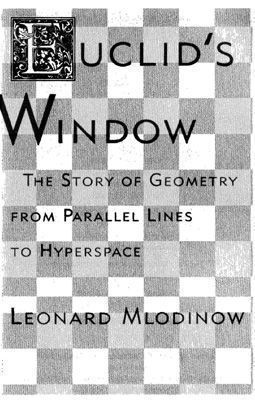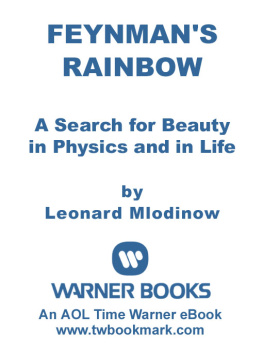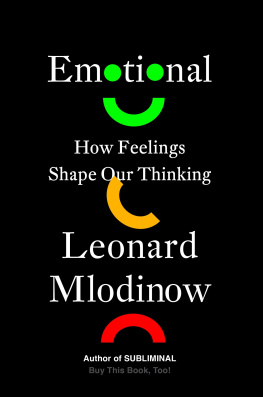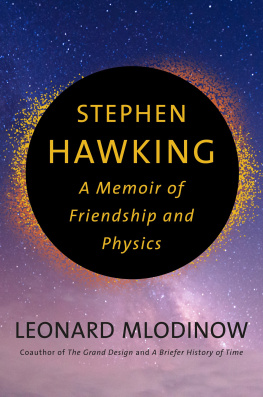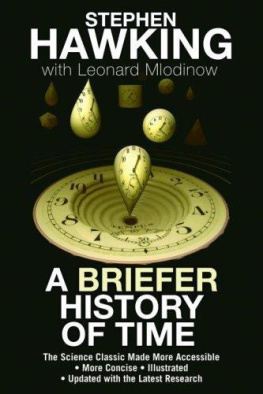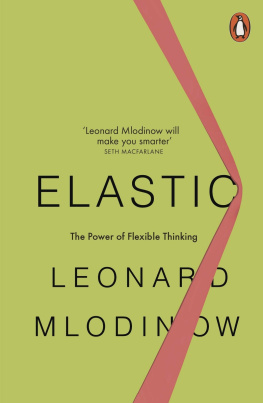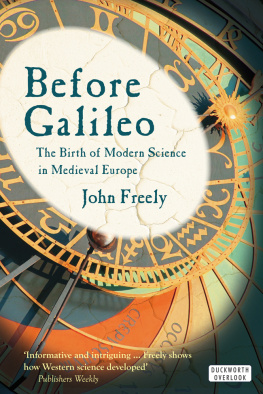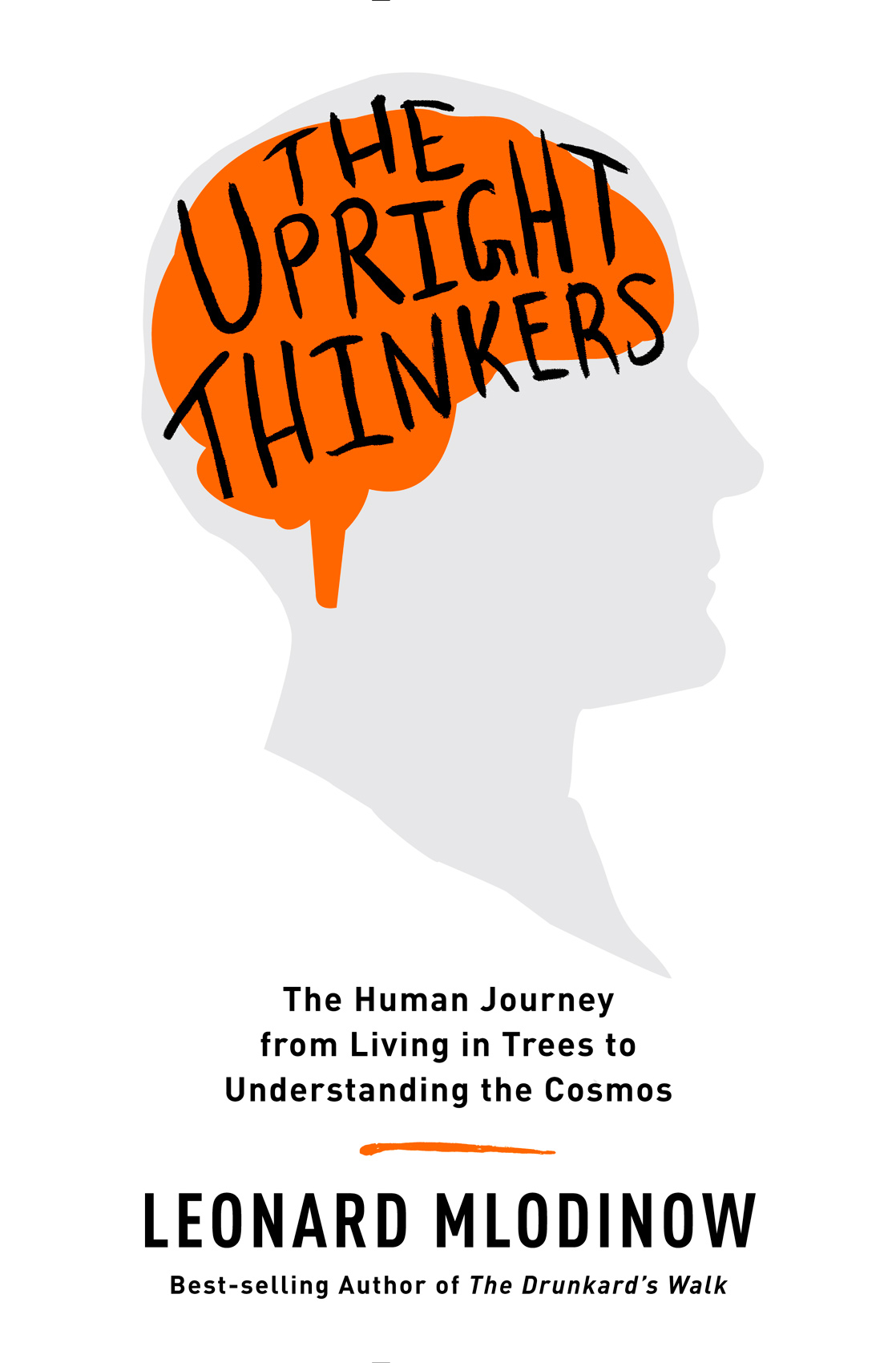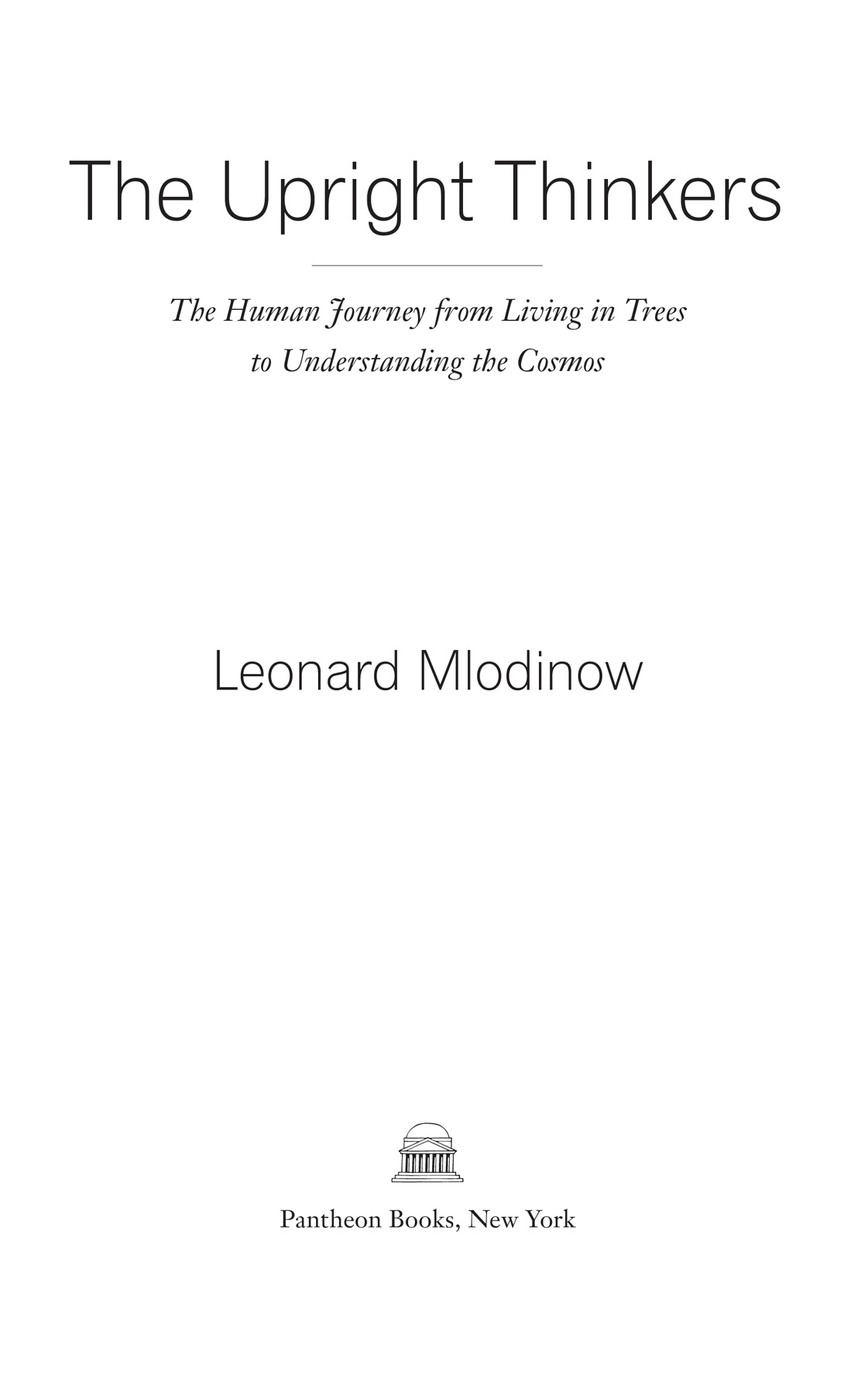Copyright 2015 by Leonard Mlodinow
All rights reserved. Published in the United States by Pantheon Books, a division of Penguin Random House LLC, New York, and in Canada by Random House of Canada, a division of Penguin Random House, Ltd., Toronto.
Pantheon Books and colophon are registered trademarks of Penguin Random House LLC.
Library of Congress Cataloging-in-Publication Data
Mlodinow, Leonard, [date]
The upright thinkers : the human journey from living in trees to understanding the cosmos / Leonard Mlodinow.
pages cm
Includes index.
ISBN 978-0-307-90823-0 (hardcover : alk. paper). ISBN 978-0-307-90824-7 (eBook).
1. ScienceHistory. I. Title.
Q126.M56 2015 509dc23 2014040067
www.pantheonbooks.com
Maps by Mapping Specialists
Cover design by Kelly Blair
v3.1
To Simon Mlodinow
Contents
A starving mans hunger for knowledge The human odyssey of discovery
Lizards dont ask questions From Handy Man to Wise, Wise Man What infants ask but chimps dont
Humanitys first church Knowledge, ideas, and values go viral Human and primate culture
From the savanna to the city How the charms and headaches of neighbors led to the new arts of writing and arithmetic The invention of law, from peasant (Dont vomit in streams) to planet (Dont stray from your orbit)
Bad crops and angry gods A new framework for looking at the world The mystery of change and the tyranny of common sense Aristotle, the one-man Wikipedia
Trusting your eyes over your ancestors Castrated boars and universal laws of motion The tactless Professor Galileo
The good, the bad, and the ugly: Isaac Newton The bet that turned Newton from alchemy to authoring the greatest scientific treatise ever written The force of Newtonian thinking
From embalming to alchemy The similarities between burning and breathing Lavoisier loses his head Mendeleev and his periodic table
Cells and the complexity of life A recipe for making mice and the revolution of the microscope Tragedy, illness, and Darwins secret research
The billion billion tiny universes in a drop of water Cracks in the Newtonian worldview Accepting an unseeable reality Planck and Einstein invent the quantum
The insights of a dreamer The crazy ideas of a pale and modest young man The early quantum laws, awful nonsense, bordering on fraud
Heisenbergs new physics The bizarre reality of the quantum universe The empowering and humbling legacy of a new science
The advance of human understanding as a succession of fantasies The importance of critical and innovative thinking Where we are and where we are going
Part I
The Upright Thinkers
The most beautiful and deepest experience a man can have is the sense of the mysterious. It is the underlying principle of religion as well as of all serious endeavor in art and science. He who never had this experience seems to me, if not dead, then at least blind.
Albert Einstein, My Credo, 1932
1
Our Drive to Know
M y father once told me of an emaciated fellow inmate in the Buchenwald concentration camp who had been educated in mathematics. You can tell something about people from what comes to mind when they hear the term pi. To the mathematician it was the ratio of the circumference of a circle to its diameter. Had I asked my father, who had but a seventh-grade education, he would have said it was a circle of crust filled with apples. One day, despite that gulf between them, the mathematician inmate gave my father a math puzzle to solve. My father thought about it for a few days but could not master it. When he saw the inmate again, he asked him for the solution. The man wouldnt say, telling my father he must discover it for himself. Sometime later, my father again spoke to the man, but the man held on to his secret as if it were a hunk of gold. My father tried to ignore his curiosity, but he couldnt. Amid the stench and death around him, he became obsessed with knowing the answer. Eventually the other inmate offered my father a dealhe would reveal the puzzles solution if my father would hand over his crust of bread. I dont know what my father weighed at the time, but when the American forces liberated him, he weighed eighty-five pounds. Still, my fathers need to know was so powerful that he parted with his bread in exchange for the answer.
I was in my late teens when my father recounted that episode, and it made a huge impact on me. My fathers family was gone, his possessions confiscated, his body starved, withered, and beaten. The Nazis had stripped him of everything palpable, yet his drive to think and reason and know survived. He was imprisoned, but his mind was free to roam, and it did. I realized then that the search for knowledge is the most human of all our desires, and that, different as our circumstances were, my own passion for understanding the world was driven by the same instinct as my fathers.
As I went on to study science in college and after, my father would question me not so much about the technicalities of what I was learning, but about the underlying meaningwhere the theories came from, why I felt they were beautiful, and what they said about us as human beings. This book, written decades later, is my attempt, finally, to answer those questions.
A few million years ago, we humans began to stand upright, altering our muscles and skeletons so that we could walk in an erect posture, which freed our hands to probe and manipulate the objects around us and extended the range of our gaze so that we could explore the far distance. But as we raised our stance, so too did our minds rise above those of other animals, allowing us to explore the world not just through eyesight but with our thoughts. We stand upright, but above all, we are thinkers.
The nobility of the human race lies in our drive to know, and our uniqueness as a species is reflected in the success weve achieved, after millennia of effort, in deciphering the puzzle that is nature. An ancient, given a microwave oven to heat his auroch meat, might have theorized that inside it was an army of hardworking, pea-size gods who built miniature bonfires under the food, then miraculously disappeared when the door was opened. But just as miraculous is the truththat a handful of simple and inviolable abstract laws account for everything in our universe, from the workings of that microwave to the natural wonders of the world around us.
As our understanding of the natural world evolved, we progressed from perceiving the tides as being governed by a goddess to understanding them as the result of the gravitational pull of the moon, and we graduated from thinking of the stars as gods floating in the heavens to identifying them as nuclear furnaces that send photons our way. Today we understand the inner workings of our sun, a hundred million miles away, and the structure of an atom more than a billion times smaller than ourselves. That we have been able to decode these and other natural phenomena is not just a marvel. It also makes a gripping tale, and an epic one.


